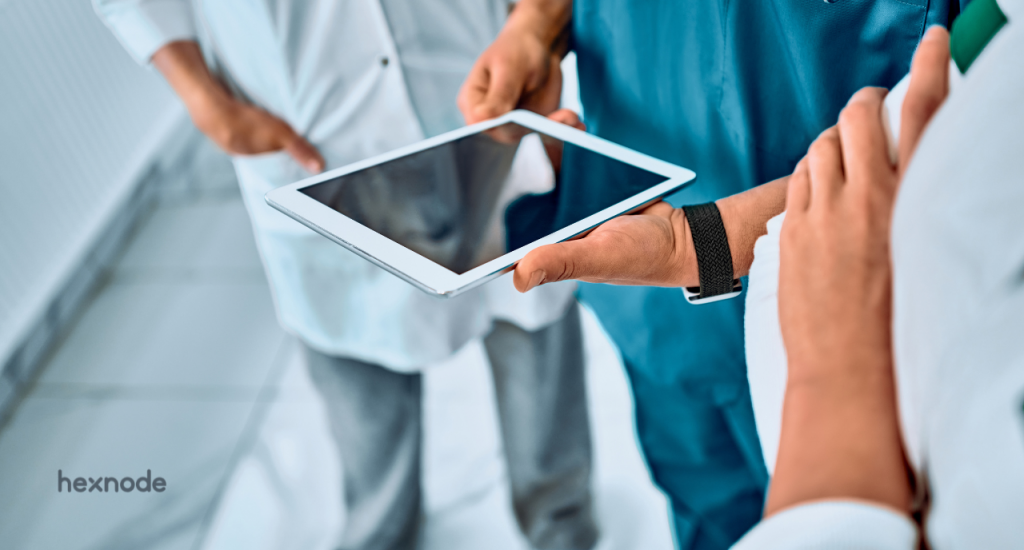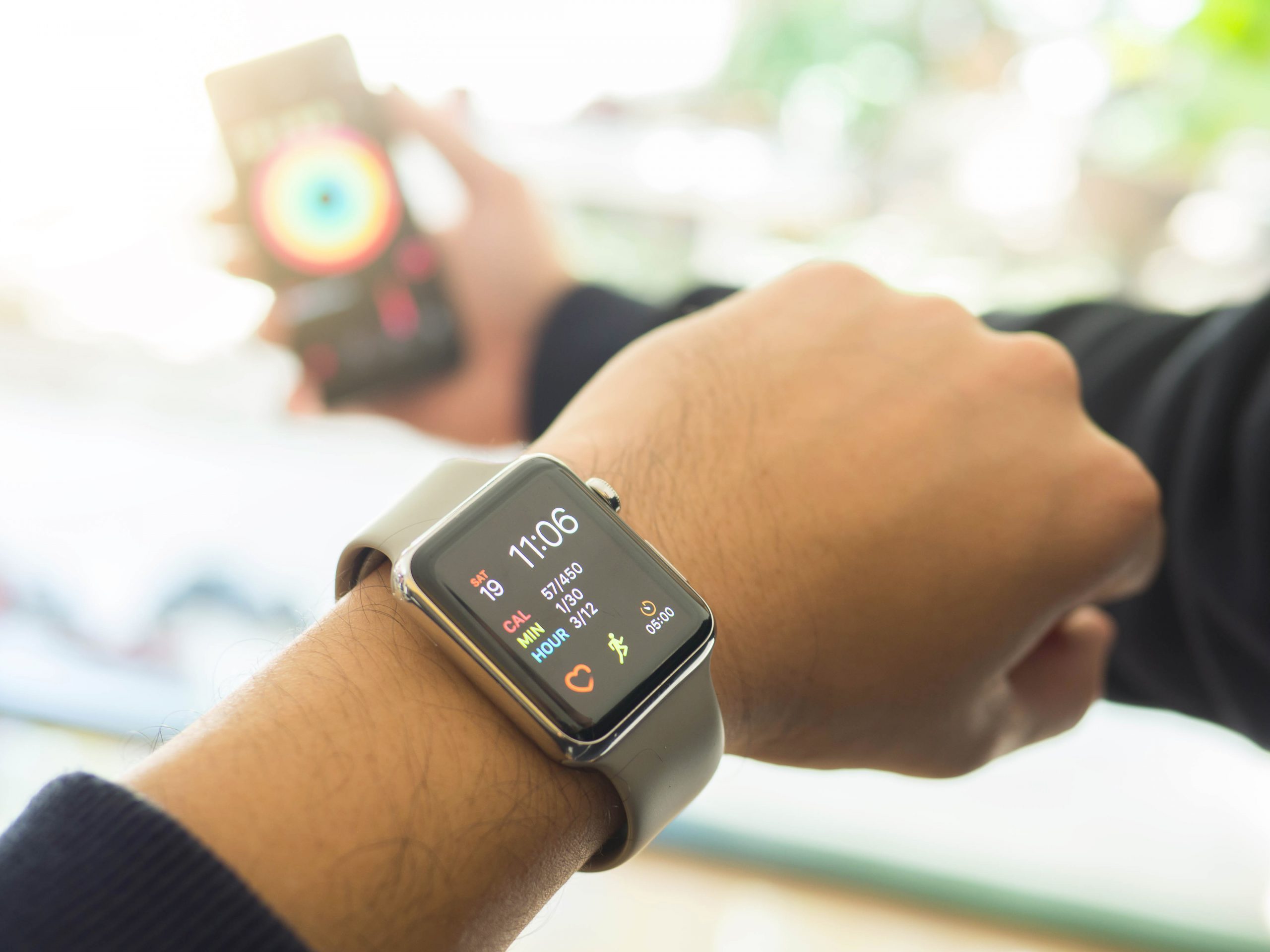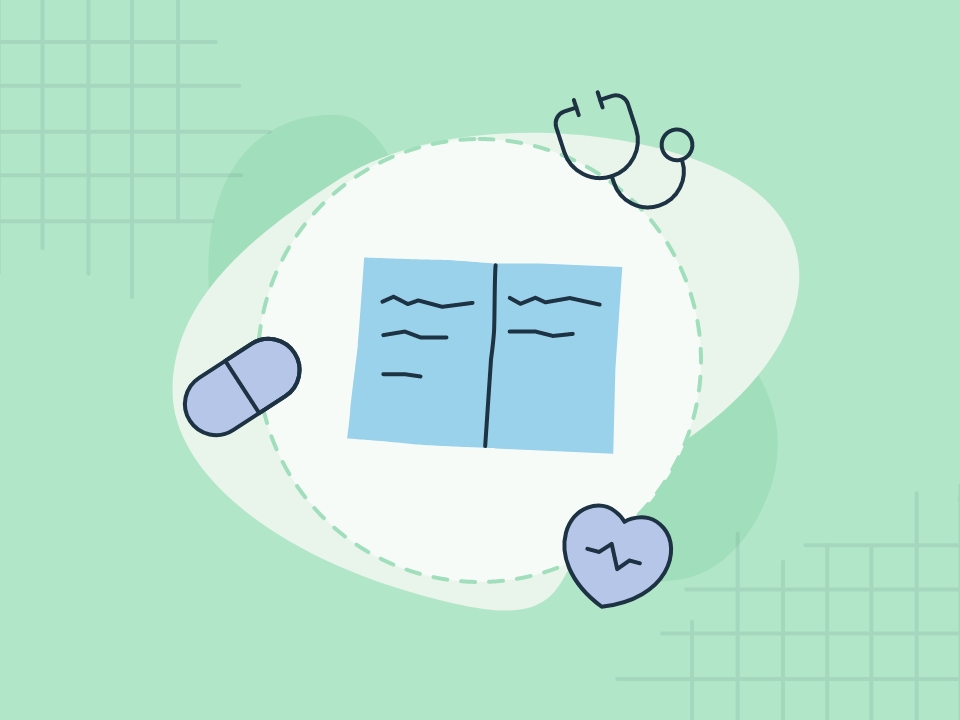Top 10 MDM solutions for healthcare
Explore the top 10 MDM solutions that are designed to cater to the requirements of healthcare providers.

Get fresh insights, pro tips, and thought starters–only the best of posts for you.
Celine Jones
Jun 9, 2023
8 min read

An ‘Apple’ a day, sure keeps the doctor away. The healthcare industry is equipped with advanced tools and technology that enable telemedicine and enhance patient outcomes. And no, ‘Googling’ your symptoms doesn’t count!
The unstoppable population growth with limited healthcare facilities is like trying to fit a square peg into a round hole. Apple polishes all corners and smoothly fits most of the requirements with many features to easily manage and care for patients on-site as well as at home. As we all know, it is a popular choice for its sleek, user-friendly interface and versatility. While this blog may lack sponsorship and some references from ‘Grey’s Anatomy’, let’s bind our focus on Apple’s disruptive force in revolutionizing the healthcare landscape.

The Health app seamlessly integrates with electronic health records (EHR) systems. This integration enables doctors to access and incorporate patient-generated health data into their clinical workflow. By viewing a patient’s medical history and data from wearable devices and health apps, doctors gain a more comprehensive understanding of their health.
Here are some additional benefits of integrating the Health app with EHR systems:
Overall, integrating the Health app with EHR systems is a valuable way to improve patient care, increase patient engagement, and reduce costs.
Apple has developed open-source frameworks, ResearchKit and CareKit, that help researchers and healthcare providers create powerful apps for medical research and patient care. ResearchKit enables large-scale data collection using Apple devices, while CareKit facilitates personalized care management and patient engagement.
Apple partners with leading healthcare institutions, such as Mayo Clinic and Cleveland Clinic, to develop and optimize healthcare applications and solutions. These partnerships foster innovation, enhance patient care, and facilitate the adoption of technology-driven advancements in healthcare.
Apple has also conducted several studies, including:
Telemedicine has become increasingly popular recently, especially during the COVID-19 pandemic. It allows healthcare professionals to provide virtual care to patients, which can save time and resources, especially for patients who live in remote areas. Apple devices can be used for telemedicine consultations.
Security and privacy play a paramount role in the healthcare sector, and Apple devices excel in offering robust security features. With a strong focus on safeguarding sensitive information, Apple devices are equipped with advanced encryption and cutting-edge biometric authentication methods. These measures provide an additional layer of protection to ensure the confidentiality and integrity of patient data.
The Health app, ResearchKit and CareKit frameworks are all equipped with privacy-centric features, such as obtaining informed consent, data encryption, and user control over data sharing.
Apple’s iMessage and FaceTime applications use end-to-end encryption to keep healthcare conversations and shared information secure and private.
Apple offers HIPAA (Health Insurance Portability and Accountability Act) compliance for certain healthcare-related features, such as Health Records. This ensures that sensitive health data is handled in accordance with the strict privacy and security regulations mandated by HIPAA.
ABM streamlines the device enrollment process, making it easier for organizations to set up and deploy Apple devices, such as iPhones, iPads, and Macs, within the healthcare infrastructure.
Device lockdown refers to the practice of securing devices by implementing restrictions and configurations that limit their functionality and access. It helps prevent unauthorized access, restricts the installation of non-approved apps, and minimizes the risk of compromised sensitive patient data.
With this implemented, healthcare professionals can use their personal devices for work-related tasks. It enables organizations to separate personal and work-related data and enforce security policies on the work-related aspects of the device.
Implementing these measures with robust security policies, thorough staff training, and continuous monitoring is crucial to address evolving security threats and significantly enhancing overall security effectively.
Speaking of security, it’s always a good idea to elevate your security plans and ease the burden on your IT admins. Their responsibilities not only lie in managing an array of devices but also to prevent any mishap of a data breach in an industry as salient as healthcare. Hexnode UEM is an extensive solution to manage all your ‘Apples’ and can greatly benefit the healthcare sector.
Some of the key areas that Hexnode can help the healthcare industry with Apple devices include:
Hexnode allows healthcare organizations to remotely manage their Apple devices and wearables. This includes features such as remote wipe, remote lock, remote configuration and geofence.
Hexnode integrates with ABM for seamless enrollment and configuration of Apple devices in healthcare. Moreover, they can distribute applications, iBooks and other learning materials.
Hexnode offers a variety of security features to help protect Apple devices from various potential threats and boost productivity. These features include device lockdown, app management, content filtering, and web filtering.
Healthcare providers can use their personal devices for work with a different business container policy pushed into their devices. So iOS devices can restrict data flow between apps, ensuring security and privacy.
Moreover, Apple introduced User Enrollment during their launch of iOS 13. User Enrollment empowers organizations with a dedicated and secure workspace on devices, keeping personal and corporate data separate to ensure robust security and compliance measures are met.
Hexnode helps healthcare organizations to comply with industry regulations such as HIPAA and PHI with various features. For example-data encryption, location tracking, setting up a geofence etc.
Hexnode offers analytics and reporting for healthcare organizations to monitor device health, track productivity, and identify improvements. With this information, healthcare organizations can make informed decisions about device management and provide better care for patients and staff.
With Hexnode, convert any iPhone and iPad into kiosks with limited access, locking them into single or multiple apps or websites. In this mode, admins can disable the back button, clear the cache, set a time for periodic refresh and more in the kiosk devices.

The UEM for healthcare kit will help organizations learn the ways to manage, secure, and monitor healthcare devices for maximum security and compliance. This kit contains a whitepaper, infographic, policy template, case studies, blogs and HIPAA compliance checklist.
Download kitApple has proven to be a healthy dose of innovation in the healthcare industry. Apple’s devices and apps have made a significant impact on healthcare, prioritizing security, privacy, and user control. Apple’s unwavering dedication to security, privacy, and user control ensures that the healthcare journey is not only technologically advanced but also safe and secure for all.
As we navigate the future of healthcare, it’s clear that Apple’s influence will continue to be felt, shaping the way we access medical information, monitor our health, and receive care. So, let’s raise our Apple devices and toast to a future where technology and healthcare go hand in hand, creating a healthier and happier world for all. After all, as they say, an apple a day keeps the doctor away, but an Apple in healthcare can truly work wonders!
Secure and streamline all Apple devices in your institution, free of cost for 14 days.
Take me there